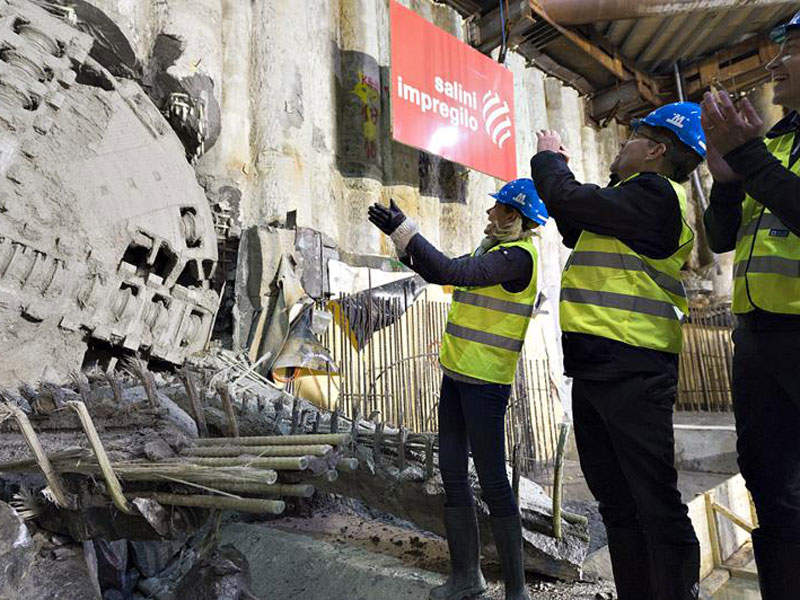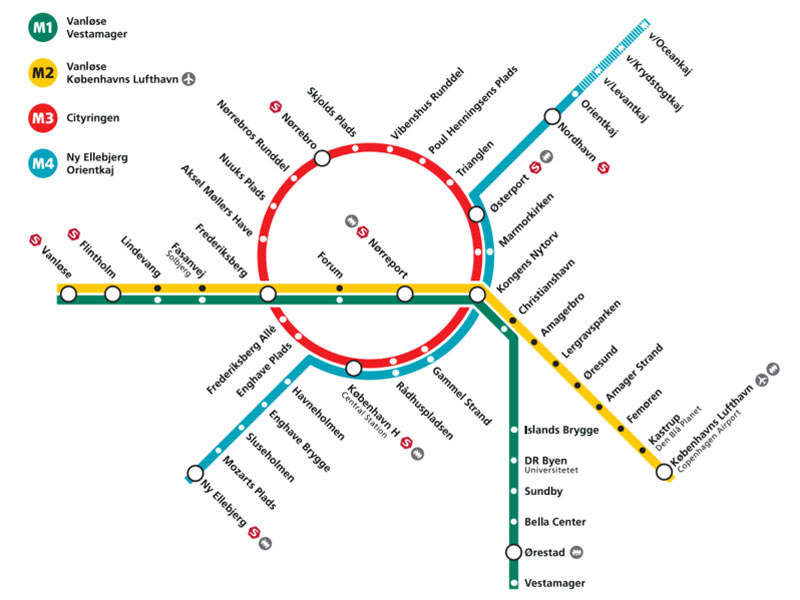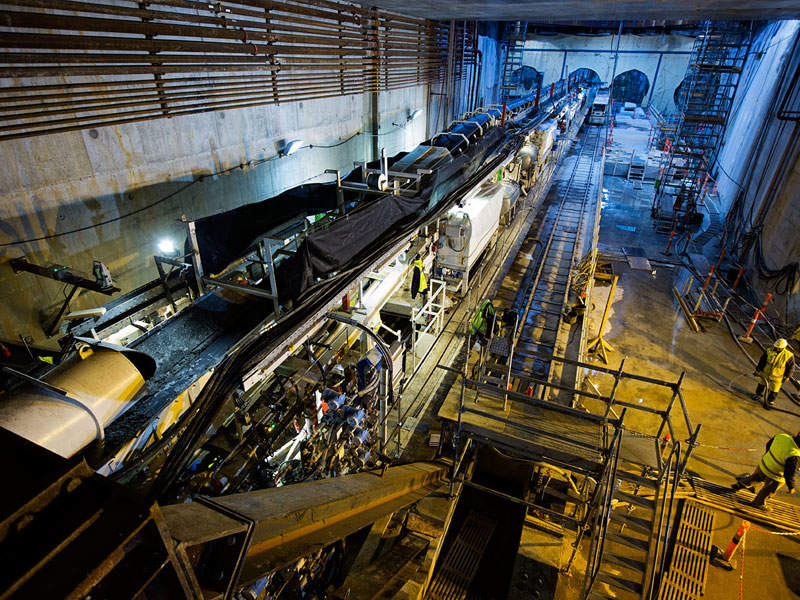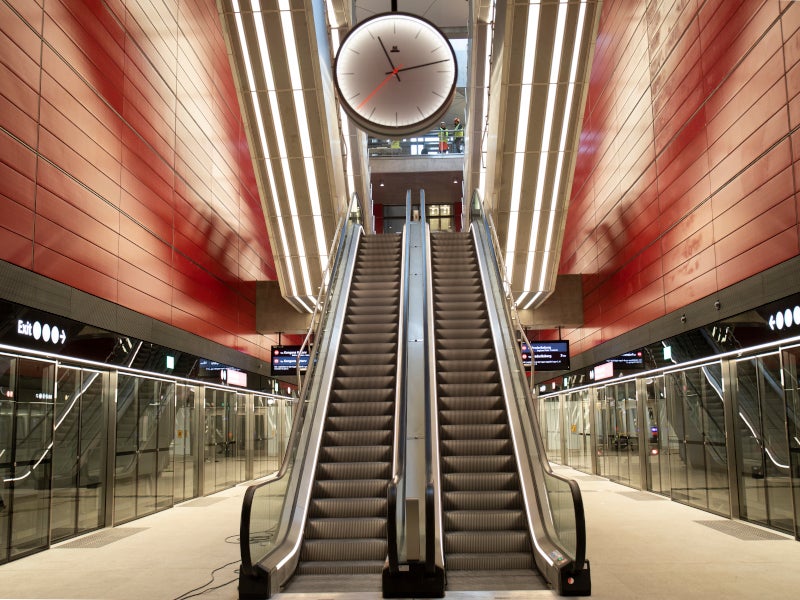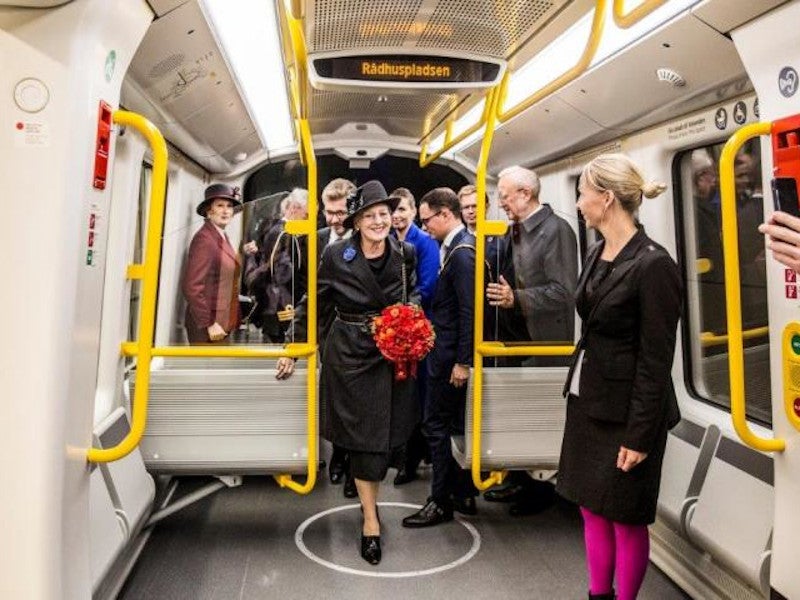Cityringen Metro is a 15.5km underground circle line developed as an extension to the Copenhagen Metro in Denmark. The expansion increased the total length of the Copenhagen metro system to 43km and number of stations to more than 40.
With an estimated cost of kr21.3bn ($3.2bn), the railway project included the construction of 17 stations, emergency shafts, and two new underground lines M3 and M4 connecting to the Kongens Nytorv and Frederiksberg stations on the existing Copenhagen metro.
The Danish Parliament approved the circle line project in mid-2007 while the construction works began in 2011. Developed by Metroselskabet, the project was completed in September 2019.
Cityringen Metro details
The new fully automated line is a driverless system operating 24/7 at a frequency of 100s. It can be accessed by approximately 240,000 passengers a day. The trains on the line travel at an average speed of 40km/h.
The metro provides services to major areas of Copenhagen such as Danish Parliament, the Central Station, City Hall, and the S-train and metro stations.
It also provides passengers with access to the regional rail and commuter train network at the Copenhagen Central, Østerport, and Nørrebro stations. Further, it is connected to the under-construction Nordhavnen Metro through a twin track line.
A round journey on the new circle line takes approximately 24 minutes. Journey on the line from Nørrebro Runddel to Enghave Plads can be completed in just seven minutes while it takes six minutes from Nørrebro station to Trianglen, and eight minutes from Poul Henningsens Plads to Rådhuspladsen.
Design of the stations on Cityringen Metro
The underground stations of the metro are cut-and-cover box structures measuring 64m x 20m. They include island platforms with widths between 7m and 9m and are located at a depth of approximately 19m.
The design of the stations is identical to the Copenhagen metro stations, which are underground stations with easy access from the street level and to the platform.
Rolling stock for the new metro line
Ansaldo, which supplied trains for the existing Copenhagen metro in 2002, also supplied the rolling stock for the Cityringen metro. The new trains have a maximum capacity of 314 passengers and a top speed of 90km/h as against the existing 80km/h.
The new trains are identical to the ones running on the existing metro, but feature advancements in technology, materials and design. They offer more space and higher top speed.
The driverless trains are monitored from the control room of the operations and maintenance centre, and use a driverless communication-based train control system (CBTC).
Passengers can keep track of the train location through an electronic display system.
Cityringen metro construction
Tunnelling of the two 15.5km parallel tunnels started in 2013 and involved four tunnel boring machines, including Eva, Minerva, Nora, and Tria.
Featuring an inner diameter of 4.9m, the tunnels were bored to depths varying from 20m to 35m and lined with sprayed concrete. Multiple emergency shafts are installed in the tunnels, to be used for ventilation and maintenance.
The control and maintenance centre buildings were completed in 2014. Other construction works completed in 2014 included the walls around the stations, three shaft structures, and the walls around the new shaft of the interchange from Cityringen to Sydhavn.
The last construction phase involved the refurbishment of areas around the new stations.
Contractors involved
Copenhagen Metro Team (CMT), a joint venture of Salini, Technimont ICB, and SELI, was awarded the civil engineering contract for the Cityringen line on 7 January 2011.
The joint venture of COWI, Arup and SYSTRA was awarded the civil works contract. SYSTRA will perform civil engineering works for tunnels and underground structures, along with project management.
Ansaldo STS is the supplier of trains, power and communications systems, supervisory control and data acquisition (SCADA), platform-edge doors, and the signalling (CBTC) system.
MT Højgaard was awarded the contract for the construction of the stations, as well as the operations and maintenance centre.
The Ramboll and Atkins joint venture provided consultancy services related to the rolling stock and the automated train depot.
CMT subcontracted MJ Eriksson for the construction of 21 shafts for the 17 stations and four other Cityringen facilities.
Bentley Systems company Comply Serve was contracted to supply its Cloud-based project compliance software ComplyPro, which will provide a live feed showing hazards and damage caused by accidents.

